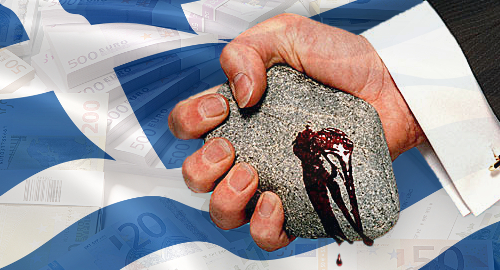 A new government-commissioned study has suggested Greece stick with its controversial plan to impose a 35% tax on online gambling revenue.
A new government-commissioned study has suggested Greece stick with its controversial plan to impose a 35% tax on online gambling revenue.
Last week, US consulting firm Grant Thornton delivered its report on Greece’s online gambling market, which the government had commissioned last year as part of its oft-delayed revamp of the nation’s online gambling regulatory structure.
According to the Grant Thornton report, Greece should offer two types of licenses: a Type A license covering purely sports betting, while Type B licenses would apply to all other gambling verticals (casino, poker, etc.).
The government is also urged not to put an arbitrary cap on the number of available licenses (the type of which got Germany’s sports betting licensing regime into so much trouble with domestic and European Union courts).
Licenses should be valid for seven-year periods, and would require upfront payment of €500k plus annual top-ups of €50k. Greek-licensed operators would be required to have a Greek domain name or a .gr suffix on its domain. Licensees would also have to establish servers in Greece to ensure monitoring of Greek punters’ activity.
As for the ever-thorny issue of taxation, Grant Thornton suggested the government stick with its plan to tax all online gambling revenue at a flat rate of 35%. This punitively high rate will likely keep the number of interested applicants to the bare minimum, effectively removing the need to impose any cap on the number of available online licenses.
Regardless, Grant Thornton maintains that, if its suggestions are followed to the letter, Greece’s online gambling market could enjoy annual growth of 7%, resulting in a net return to the state of €1.3b over the next 12 years.
Greece has been attempting to restructure its online gambling market for nearly a decade now, but never seems to get any closer to the finish line. Last September, the country’s finance ministry insisted that an online license tender would launch within one month. In December, the government admitted it was still soliciting feedback from prospective licensees.
There are signs that Greece is getting serious about collecting some online gambling revenue. Last week, the government hit UK-licensed GVC Holdings with a €187m back-tax demand to cover the local market activity of GVC’s Sportingbet brand.
GVC’s statement on the tax grab said it was one of “multiple online gaming operators” to be hit with a Greek tax shakedown, which could indicate that the cash-strapped government is keen on settling all old scores before moving forward with its new online licensing plans.